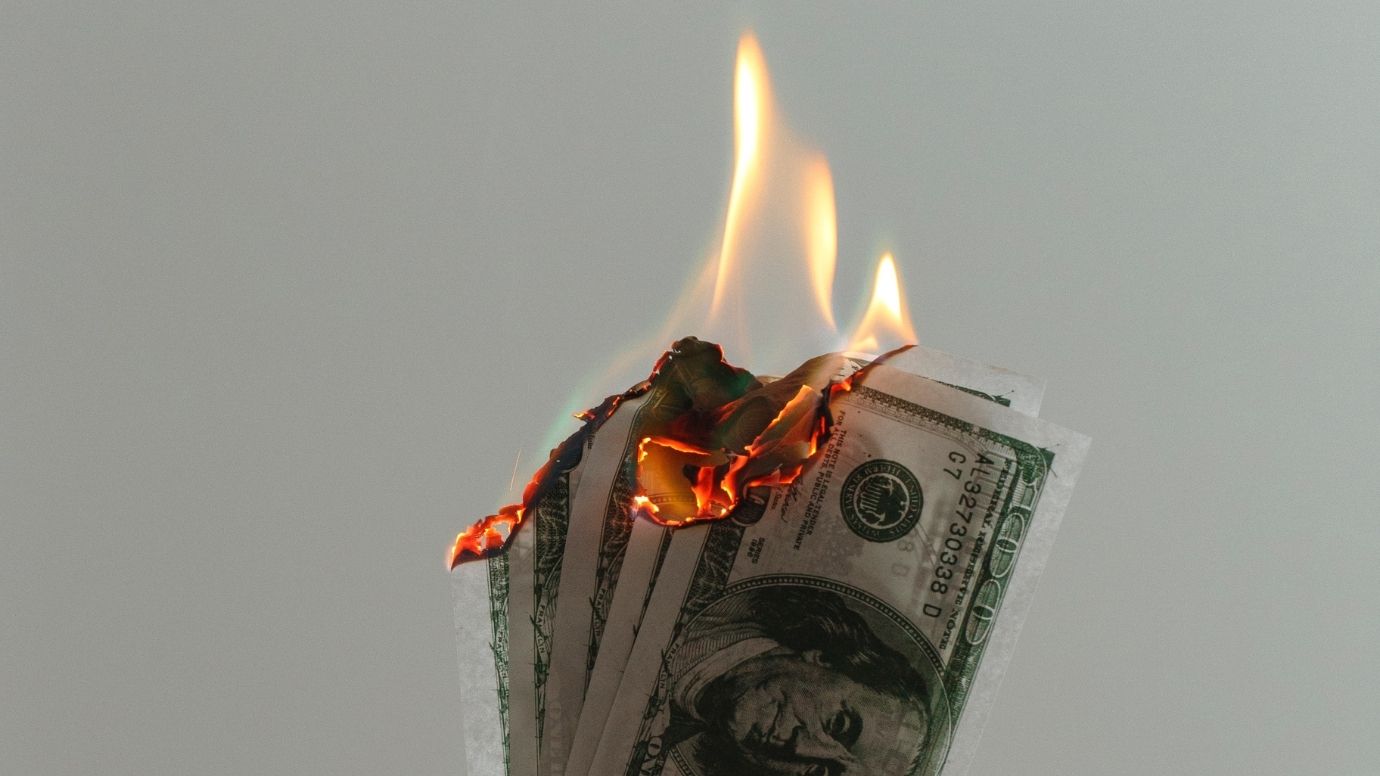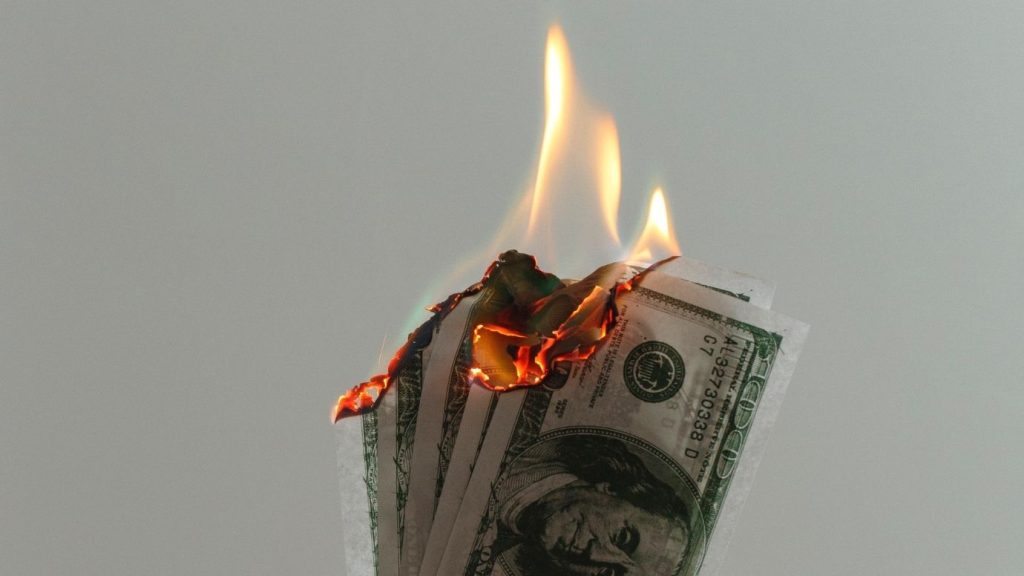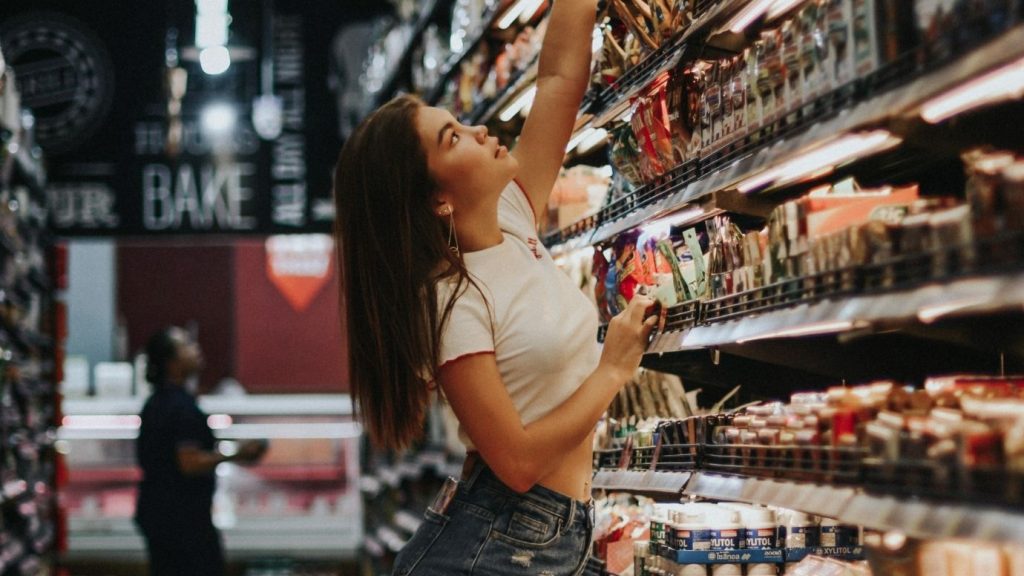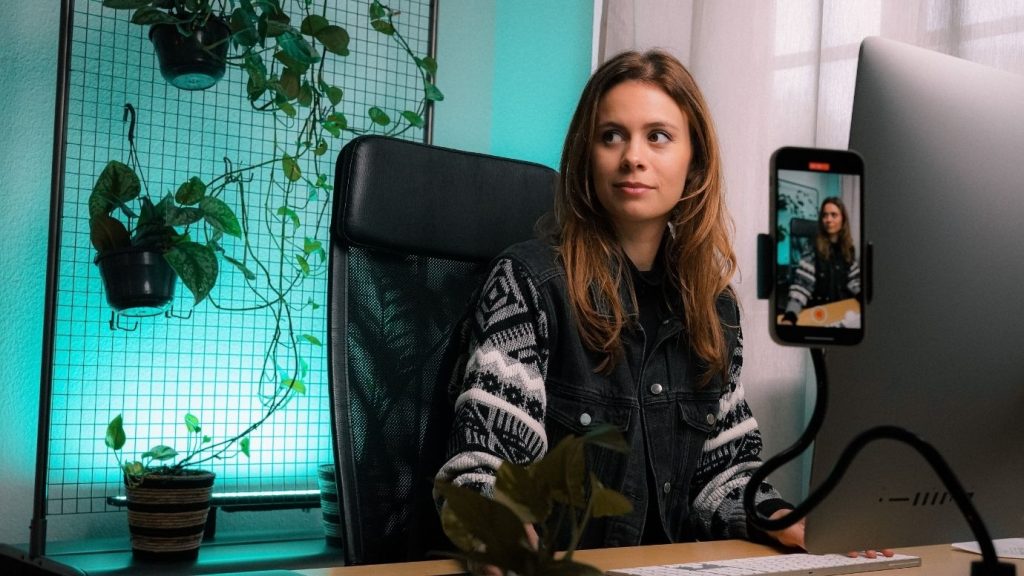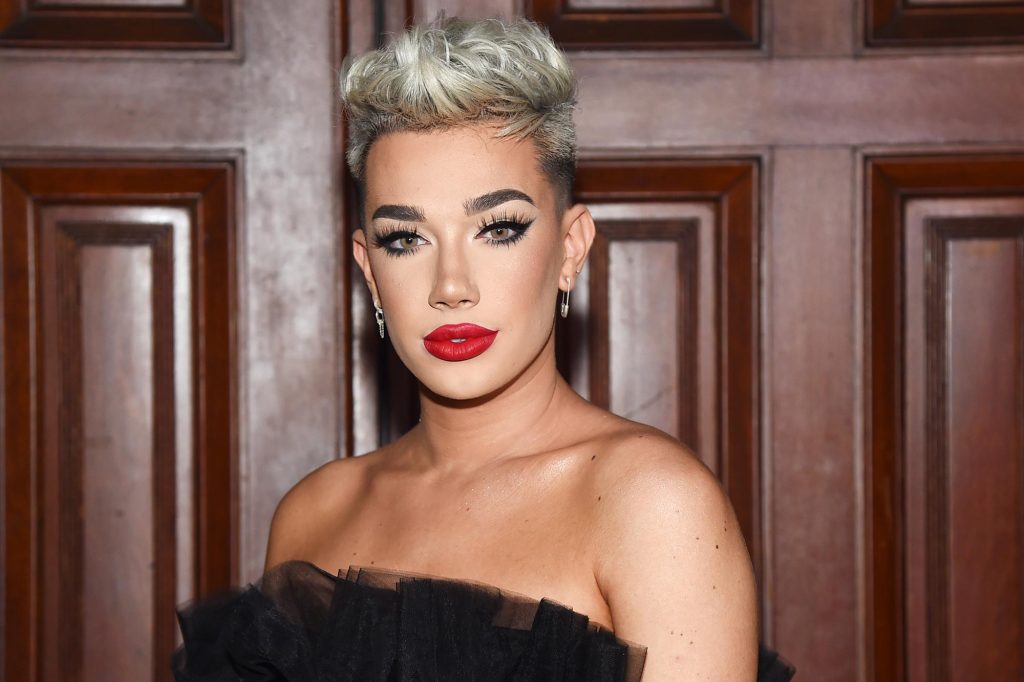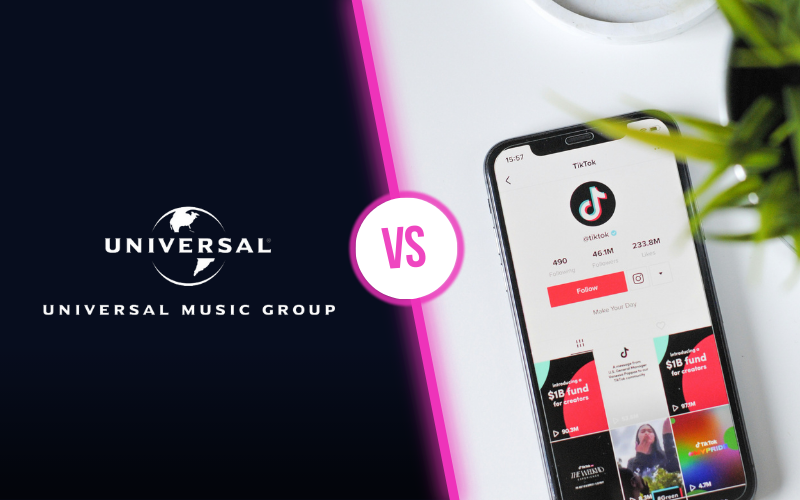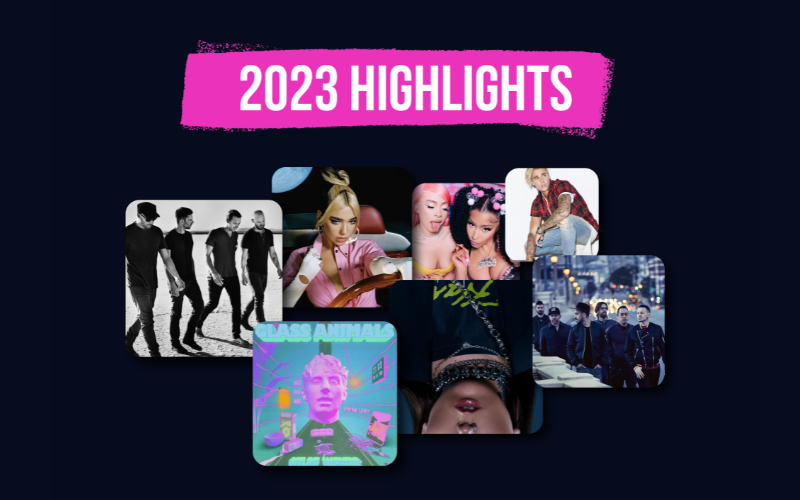Jumping through the hoops to get your account monetized in the first place can feel like a slog. But, once you’ve finally ticked all the right boxes you need to make sure they stay ticked. For anyone new to YouTube monetization and the site’s policies, there may be some concern about what you need to do to prevent YouTube demonetization, keep ad revenue and still make content that people want to watch.
As experts in helping content creators find the very best stock music for YouTube videos, we’re here to help you navigate the tricky waters of activating YouTube monetization and then learn everything you need to know about preventing demonetization.
What does video monetization mean?
Before you need to worry about YouTube demonetization on the video streaming platform, you need to know what monetization even is. It’s the ability to make advertising revenue through displaying paid ads on your content. It’s how YouTube creators across the world make money from their content. We’ve got a whole guide ready and waiting to help you get monetized on YouTube, so if you’re not there yet, we’d recommend checking that out first.
What does demonetized mean on YouTube?
Let’s start with the basics. Demonetization on YouTube is a process that YouTube can take to punish you as a creator who violates any of their monetization policies. Demonetization can include:
- YouTube instantly turning off ads from your content
- Suspending you from the YouTube Partner Program
- Potential suspension or termination of your entire YouTube channel
While demonetization generally refers to the first two punishments in this list, as they stop your ability to make money from your YouTube channel, the third is one that shouldn’t be ignored. It’s key to understand why YouTube demonetizes videos and channels to stop it from happening.
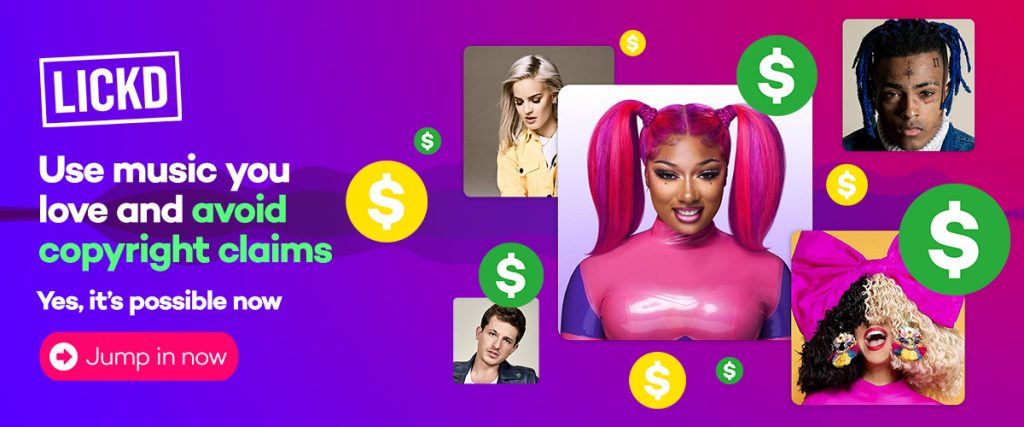
Why does YouTube demonetize certain videos & channels?
Usually, a video, or an entire channel, gets demonetized for failing to follow YouTube’s community guidelines. These community guidelines are designed to stop potentially sensitive, harmful or dangerous content from being viewed by people who shouldn’t be watching it and anyone looking to avoid demonetization should be aware of them. These guidelines apply to a whole channel, rather than just individual videos and include:
- Spam, deceptive practices, and scams – this is one of the biggest categories in the guidelines. In short, it’s aimed at people posting content to spread misinformation aimed at taking advantage of YouTube’s community, but it also includes content that’s excessively posted or tries to make you browse away from YouTube. This category includes things as simple as “get rich quick” schemes or spam comments all the way up to voter suppression or distribution of hacked materials. It’s important to be familiar with everything that it touches on.
Learn more about spam, deceptive practices and scams.
- Nudity and sexual content – Any nudity or content that’s designed to be sexually gratifying, like pornography, is completely banned from YouTube. If you post this content you run the risk of not just being demonetized but having your content removed or channel terminated. Some fetish-based content is allowed, but it may be age-restricted, which would greatly affect your ability to monetize your YouTube video. Some forms of sexually explicit content aren’t just banned, they’re illegal. Content that includes minors in a sexually exploitative way will get you reported to the National Center for Missing and Exploited Children and law enforcement.
Learn more about nudity and sexual content regulations.
- Child safety – YouTube takes its entire community’s well-being seriously, and it puts child safety at its forefront. It doesn’t allow content that puts the mental and physical well-being of children at risk. In this instance, a child, or minor, is anyone under 18 years of age. This is content that depicts minors being harmed, sexualized, bullied or coerced. It also includes content that’s deemed as inaccurate or misleading to families.
Learn more about YouTube’s child safety regulations.
- Harmful or dangerous content – This is content that’s deemed to either be graphic and showing harm or content that’s believed to be created with the purpose of inspiring dangerous activity. It includes dangerous challenges or pranks, content around eating disorders, content that glorifies & promotes violent tragedies or else instructional content that’s aimed to help people do illegal activities.
Learn more about what YouTube classes as harmful or dangerous content.
- Hate speech – Content that’s created with the purpose of promoting violence or hatred against either an individual or a group based on a number of specifications. This includes disabilities, religion, race, sex/gender, sexual orientation and a number of other attributes.
Learn more about hate speech.
- Harassment and cyberbullying – This overlaps heavily with the hate speech category, with a focus on an individual. It’s aimed to stop people from posting or uploading content that attacks an individual over a prolonged period of time or in a particularly malicious way. It’s worth noting that debates, scripted performances or educational content are an exception.
Learn more about harassment and cyberbullying.
What are the rules to prevent getting demonetized on YouTube?
Once you, as a content creator, understand the community guidelines you just need to make sure you stick to the rules. If you do this you’ll be able to avoid potential demonetization. These rules and policies include:
Understand and follow YouTubes community guidelines and policies for advertising
We’ve already covered off the main community guidelines above, which generally cover the rules around potentially harmful & dangerous content and content with adult themes. In addition to this there are a number of other policies that directly affect monetization, rather than just general YouTube usage. These are:
- AdSense Program Policies – AdSense is the platform YouTube uses to run ads on its videos. Failure to comply with any of Google’s AdSense policies can also see your account demonetized. These policies include artificially generating ad clicks, encouraging people to click on ads, using ads on content that violates their publisher policy or on a number of other pages. Review all of the AdSense policies before you sign up.
- YouTube monetization policies – These policies are ones you’ll likely have been following to get monetized in the first place. Once you’ve been monetized you’ll need to make sure you stick to them. Need a reminder? Check out YouTube’s monetization policies.
- Advertiser-friendly content guidelines – while YouTube has a number of subjects it instantly deems as not advertiser-friendly, there are a few things you need to be careful of. Even if your video’s subject is advertiser-friendly you need to avoid potentially adult themes or inappropriate language. While these may not see you completely demonetized, they could see your content restricted which would limit your potential advertisers and exposure.
Recent cases have highlighted that it’s not just your behaviour on the platform that can get you demonetized. In a recent case, one particular YouTuber was demonetized for sexual abuse claims. YouTube expects those who take advantage of their platform to also live their lives following the same ethics as in its online policies, so stay responsible both on and offline. YouTube has a number of guidelines around creator responsibility and you should be familiar with them.
Types of content that can get you demonetized
Uploading advertiser-friendly content is the key to making regular money through YouTube. This means that you need to avoid uploading content that isn’t deemed advertiser-friendly, whether it’s drug-related, covering controversial issues, deliberately incendiary and demeaning or related to taboo subjects. These policies apply to all aspects of your content including the video, live stream, thumbnail, title, description and all tags. The main topics you should steer clear of to help avoid YouTube demonetization are:
- Inappropriate language – This focuses on frequent use of bad language. While certain language, like hate speech or slurs, will be judged separately, not all bad language is off-limits. You must be wary though and avoid prolonged or frequent usage of bad language. YouTube doesn’t require everything to be completely family-friendly, but advertisers often prefer videos that are.
Learn more about YouTube’s blacklist of words and what it classes as inappropriate language.
- Violence – Any violence in your content must have a context. For instance, if it’s part of a news story, educational or part of a video game it may be allowed. Any video that includes violence as its focal point will risk removal or demonetization.
Learn more about what YouTube classes as violence.
- Adult content – Sexual themes are not advertiser-friendly and that makes adult content a risk. Educational content and music videos may still be monetized in some scenarios. Comedy content may not be suitable.
Learn more about what classes as adult content.
- Shocking content – Any content that’s deliberately uploaded with the intent to shock, upset or disgust will not be suitable for advertising.
Learn more about shocking content.
- Harmful or dangerous acts – Anything that promotes potential harmful acts, whether it’s physical, emotional or psychological is not deemed appropriate for advertising.
Learn more about harmful or dangerous acts.
- Hateful & derogatory content – Whenever content incites hate, anger, discrimination or humiliation towards an individual or group of people it will not be suitable for advertising. In some instances, satire or comedy may still be approved, but simply stating the content is for comedic purposes is not enough.
Learn more about hateful & derogatory content.
- Recreational drugs and drug-related content – Drug related or content that promotes the sale, use or abuse of substances of any kind is not seen as suitable for advertising.
Learn more about drug-related content.
- Firearms-related content – Any content that’s deemed as firearms-related is also unsuitable for advertising. This includes the assembly, use or sale or firearms.
Learn more about firearms-related content.
- Controversial issues – Anything that could be unsettling to viewers is not suitable for advertising. This includes commentary or news.
What counts as a controversial issue?
- Sensitive events – While there are many videos created when an unforeseen event, like a tragedy, loss of life, terrorist attack or similar takes place, they cannot be monetized. As these videos often touch on sensitive issues or generate a visceral reaction they aren’t seen as suitable for advertising. YouTubers can potentially monetize videos that provide commentary on older historical events.
Learn about YouTube’s classification of sensitive events.
- Incendiary and demeaning – Any content that’s seen as incendiary, demeaning or inflammatory falls under the same restrictions as ‘hateful content’. It can not be monetized.
Find out what YouTube deems incendiary or demeaning.
- Tobacco-related content – In the same way that drug-related content can’t be monetized, tobacco content, including vaping, that promotes the sale or use of tobacco products cannot be monetized as it falls under the ‘harmful or dangerous’ category.
Learn more about tobacco content.
- Adult themes in family content – If a video is aimed at a wider audience, including families, but contains adult themes, it cannot be monetized. This remains the case for any comedy or satire that uses adult themes in family content.
What is classified as an adult theme in family content?
How not to get demonetized on YouTube for music
Avoiding YouTube demonetization and keeping your ad revenue coming in isn’t as difficult as it sounds. Once you’ve made sure you’ve stuck to the community guidelines and the other policies you just need to make sure your music is licensed.
If you upload video content with music you don’t have permission to use, your video could be removed, you could receive a strike or, at the very least, be demonetized. This is where Lickd comes in. We are experts in music licensing for social media and integrate with the YouTube Content ID system to help content creators add music to their videos without having to worry about a copyright violation.
YouTube implements manual checks but also uses bots and their Content ID system to find videos that breach copyright laws. Stop your channel from being demonetized and license your music with Lickd. Lickd is the first and only platform to give creators access to mainstream music that they can use in their videos and not get demonetized! We also have the biggest music library for creators with over 1 Million hits and over 100K stock tracks. What are you waiting for? It’s time creators get better music, because better music matters (no literally, it actually increases all your stats and grows your channel).
What to do when you have been demonetized on YouTube
Now, we’ve gone over how to prevent being demonetized, but what happens if you actually get demonetized? Don’t worry, it’s not the end of the world. You can get your YouTube video or account monetized again.
When your account, channel or video is demonetized, you’ll receive an email and notification. At this point, you will need to get in touch with the YouTube Creator Support Team if you want to report
How to get monetization back on your account
The seemingly simple steps to getting monetization back on your video are:
- Identify the causes of your demonetization
- Remove the cause, if it’s simple
- Ask the YouTube Creator Support Team to review the changes on your account
This sounds pretty simple, but in reality it can take a little longer. The key is to eliminate anything bad you’ve done and make a report.
How to report when your account has been demonetized
When your account, channel or video is demonetized, you’ll receive an email and notification. At this point, you will need to get in touch with the YouTube Creator Support Team to make a report. A report gives you a chance to push back on a decision or to let them know you’ve solved the problems that got you demonetized in the first place.
If you’re on YouTube’s Partner Program (YPP) you can get in touch with the creator support team here.
Famous Youtube Demonetizations/Suspensions
You may well think demonetization won’t happen to you and your income won’t be affected, but we’re going to run you through some high-profile YouTube suspensions to really hit home how your ad revenue could be affected. These include a mixture of simple demonetizations and suspensions for a number of reasons.
James Charles – after a series of allegations James Charles was removed from the YouTube Partner Program. They were deemed to have strayed out of bounds for what the program considers appropriate behavior and as such, had ads paused on their videos. James Charles has had videos demonetized for copyright claims over music in the past too.
Spectre Sound Studios/Glenn Fricker – At the other end of the spectrum is a much-loved recording studio that offers tutorials. They had a video demonetized by YouTube after it had been live for a number of years due to a 15-second clip of an Iron Maiden song.
The Government of Pakistan – that’s right, the government of an entire country. They had their account suspended in 2018 for copyright infringement. They used another YouTuber’s content without permission and were suspended for a number of days.
Logan Paul – One of the biggest YouTubers, Logan Paul has had his account suspended or demonetized on a number of occasions. The most prominent was for a series of behavior where he breached a number of the community guidelines by uploading potentially harmful and damaging content.
Now you know all about YouTube demonetization! But, who is Lickd?
Lickd has a massive library of major and independent tracks that you can search by artist, label, mood, and more. Lickd music is legal and claims-free, so you’ll never have to worry about royalty payments, copyright claims, or blocked videos.
Plus, if you sign up today, you get 25% off your first track!
